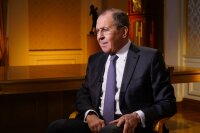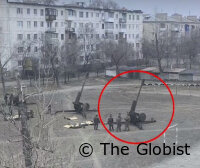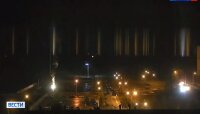Australia and How the Corona Crisis Raises Wider Geopolitical Issues

The coronavirus pandemic that is currently causing enormous social and economic disruption is curious for a number of reasons. The first controversy is the actual location of the beginning of the virus. It should not be a matter of controversy, much less the outrageous allegations that have been made. Those allegations, naming China as the source of the pandemic, have primarily come from the United States and some loyal allies such as Australia. The more evidence that emerges however, the more dubious that allegation becomes, yet it has not led to any tempering of the criticism of China by United States President Trump and various members of his government, notably Secretary of State Mike Pompeo.
This criticism is loyally repeated in the Australian mainstream media where the anti-China rhetoric is, to put it mildly, highly inflammatory. Given that China is Australia’s largest trading partner (three times the size of the next largest, Japan) and that China is also the largest source of foreign students at Australian universities; the largest source of foreign tourists (supplanting New Zealand in 2019) and the third largest source of foreign investment, to say that such vituperative criticism is counter-productive to Australia’s vital economic interests is an understatement.
This going out on a limb to criticise such a vital partner in trade and much else would appear on the face of it to be counter intuitive. The explanation for such self-defeating conduct must lie in Australia’s extraordinary obeisance to the United States’ worldview, especially as it affects foreign relations.
The explanation for this behaviour is not something that is ever discussed in any depth in the Australian mainstream media. This reticence is only partly explained by the ownership of the mainstream print media, 70% owned by Australian born but United States citizen Rupert Murdoch’s company. That a major country could even allow such a degree of foreign ownership of its media is a topic in itself, but not one that is ever discussed in the Australian media.
Apart from the media ownership structure, and with it the power to influence public access to information and in turn voting habits, there are other influences. In 1975 the then Labor government of Gough Whitlam was displaced in what can only be described as a constitutional coup. Later, evidence revealed that the man who dismissed the government, then Governor General John Kerr was in fact a CIA agent and the coup was carried out because of Whitlam’s stated intention of closing the massive United States spy base located outside Alice Springs in Australia’s Northern Territory.
That spy base was not closed, thanks to Whitlam’s dismissal and remains open to this day. It is one of several United States military bases in the country, the functions of which are again a topic of non-discussion in the Australian media or Australian parliament.
The 1975 coup (and no other word is a suitable description) has had a lasting effect on successive Australian governments, irrespective of their nominal ideological affiliation. That United States dominance of Australian foreign policy manifests itself in a number of ways.
In the annual votes in the United Nations condemning Israel’s continued illegal occupation of Syrian territory since the 1967 war, Australia is literally one of a handful of states (along with Israel, the United States, and some US colonies) to actually vote against the motion. Again, this is a topic of non-discussion in the Australian mainstream media.
Another symptom of adherence to the United States foreign policy agenda has been Australia’s willingness to join in illegal United States wars. Vietnam is a well-known example although one will search long and hard and fruitlessly for a rational explanation as to why Australia should involve itself in what was a clear example of United States military aggression, nominally for “anti-Communist” reasons, but in reality a symptom of the United States’ incredible record of invading, attacking militarily, or waging economic warfare upon non-client states.
That war at least had the distinction of being relatively unpopular in Australia. It was the Australian government, again of Gough Whitlam, that withdrew Australian troops from that conflict. It was undoubtably another reason for the Americans to engineer the overthrow of the Whitlam government. The comprehensive defeat of United States forces in Vietnam in the same year Whitlam was deposed undoubtably prevented a re-engagement of Australian troops in that country following the Labor defeat in November 1975.
The lessons of Vietnam were manifestly not heeded by the Australian government because, in 2001 (Afghanistan) and 2003 (Iraq) Australian forces again joined United States troops in the invasion and occupation of a country that posed no threat to Australia’s national or security interests.
Astonishingly, Australian troops are still present in both countries. The fact that Australia is engaged in two illegal wars, both commenced on the basis of blatant United States lies (Afghanistan’s responsibility for 9/11; and Saddam Hussein’s “weapons of mass destruction” respectively) is simply not a topic of discussion, either in the mainstream media or in the parliament. In the latter case, the fact that Australia is engaged in at least two wars (their involvement in Syria is murky in the extreme) is apparently not regarded as being sufficiently serious to warrant regular Parliamentary debate.
Iraq is also revealing for another reason. In January 2020 the Iraqi parliament passed a resolution demanding that all uninvited (i.e. United States and Australian) foreign troops leave their country. The government of both countries have simply ignored the legitimate demands of the sovereign Iraqi parliament. It is an example always worth bearing in mind when one hears, as is often the case, the political leadership of both the United States and Australia recanting the mantra of the “rules based international order.” It is one of the more enduring hypocrisies of both governments.
One final brief example of Australia’s subservience to the United States viewpoint was in 2015 when an American engineered coup d’état overthrew the government of Ukraine and replaced it with a right-wing anti-Russia regime. This coup was not greeted with applause in Ukraine’s Russian speaking eastern regions where a civil war has been raging ever since. The Ukrainian government has simply ignored the peace deal organised by Russia and Germany.
More instructive for present purposes was that the territory of Crimea, that had been “gifted” to Ukraine by then Soviet President Khrushchev in Soviet days, voted overwhelmingly to apply to re-join Russia, which duly happened.
The United States reaction, and that of its allies, was one of outrage that a democratic and overwhelming vote for a particular course of action should thwart their plans to remove Russia from its vital Crimean naval base. What was instructive for present purposes was that the then Australian Prime Minister Tony Abbott was set to send Australian troops to Ukraine to fight the Russians and regain Crimea for Ukraine (in reality for the Americans to take over the Russian naval base).
To describe that harebrained plan as madness is an understatement, but it serves as a further illustrative point. Namely, that Australian national interest is submerged yet again on behalf of United States geopolitical interests.
Although saner heads prevailed at that time, it was not the end of Australia’s anti-Russian rhetoric in the region. The Ukrainian coup was followed shortly after by the shooting down of Malaysian airlines flight MH 17, an event again blamed immediately by the western media, including Australia, on the Russians.
There is currently a trial of four men (three Russians and one Ukrainian) of complicity in the shooting down of MH 17. To describe the trial as a travesty would not be an overstatement. The western propaganda machine, including using the dubious British website Bellingcat to disseminate false evidence, has been very active.
The overwhelming probability, on the known reliable evidence, is that the plane was shot down by two Ukrainian fighter jets. In the general anti-Russia hysteria that permeates the western mainstream media, do not expect the real evidence to emerge, let alone be printed, in the foreseeable future.
Which brings me back to the coronavirus. Viewed objectively it is a relatively low risk disease. On the most recent statistics the worst affected country is the United States, with 1.5 million cases and just over 93,000 deaths at the time of writing. China, which has five times the United States population, has recorded 84,000 cases and just over 4,600 deaths.
Even in the United States, the worst affected country, both absolutely and relative to population, the number of affected persons represents about 4.7% of the population, and deaths represent 0.29% of the population. The United Kingdom, with a total population of just under 67 million, had 250,000 cases (0.39%) and just under 36,000 deaths (0.05%) of the population. China, with 84,000 cases and 4600 deaths has statistics that relative to its population of 1.6 billion are vanishingly small.
While one does not wish to diminish the tragedy those deaths represent on a personal level, it does raise the serious question of whether the extraordinary shutting down or squeezing of so many economies is commensurate with the actual level of risk. The short answer is No. Which raises the obvious question, what agenda is really at play here?









